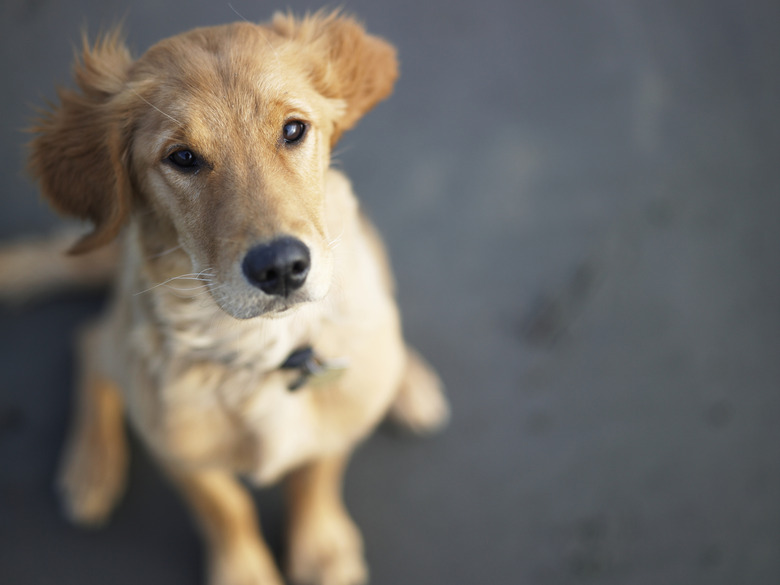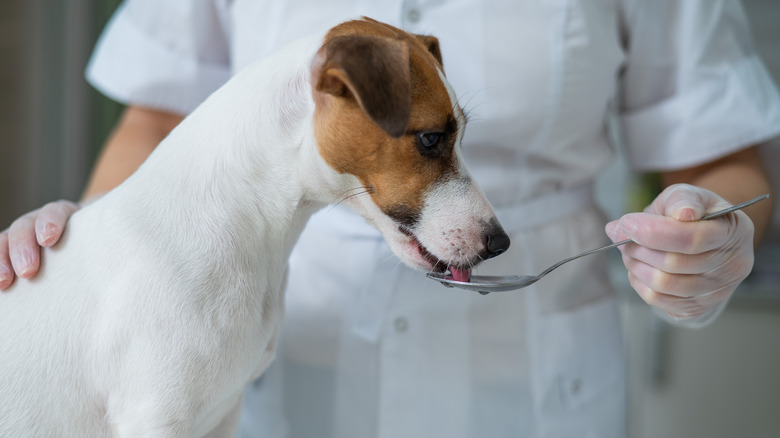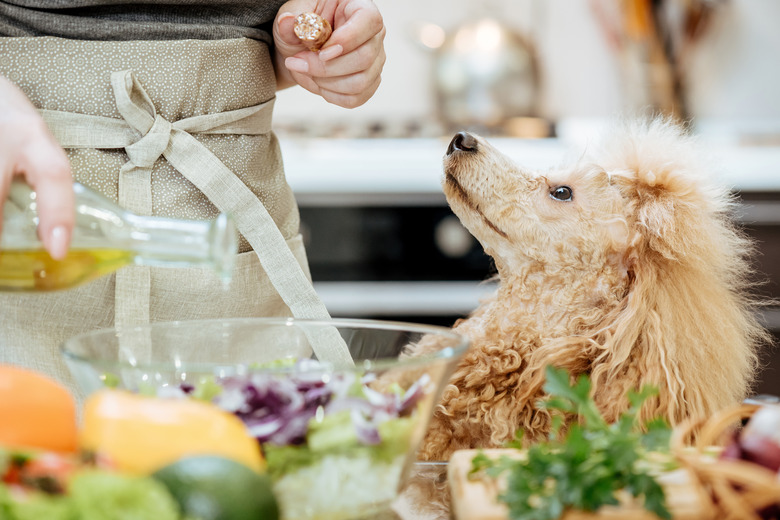Are Cooking Oils Safe For Dogs To Eat?
Knowing which foods are healthy for your dog's diet and which may have a negative impact is beneficial. Giving your dog food they cannot digest easily may cause stomach problems and allergic reactions. If you are considering giving your dog table scraps or food not specifically formulated for dogs, you should know whether cooking oils, such as olive oil, that are used to prepare the foods are safe for dog consumption.
Is olive oil good for dogs?
Is olive oil good for dogs?
Very little research has been conducted on the effects of olive oil on dogs. Olive oil, which contains monounsaturated fats, is known to have many health benefits for humans. Olive oil is not harmful to dogs in small amounts and can safely be used both topically to moisturize dry skin and as a supplement to their diet.
Are there health benefits of olive oil for dogs?
Are there health benefits of olive oil for dogs?
Little is known about the long-term benefits of olive oil to dogs. Olive oil has antioxidant and anti-inflammatory benefits for humans, and its use has been associated with lower levels of cardiovascular disease, reducing the risk of some cancers and slowing cognitive decline.
Olive oil contains vitamin E and omega-3 fatty acids, which are known to be beneficial to dogs' skin and joint health. Olive oil is sometimes suggested as a remedy for constipation in dogs. It is also becoming more common for olive oil to be added as a supplement in commercial pet foods.
How much olive oil can I give my dog?
How much olive oil can I give my dog?
It is best to be conservative when giving olive oil to your dog. If you give your dog 1 teaspoon of olive oil for every 20 pounds of body weight, your dog should not be adversely affected. Although there are unsubstantiated suggestions that olive oil assists in weight loss in humans, it is high in fat and calories, so consult your veterinarian before giving it to an overweight dog.
Is extra virgin olive oil good for dogs?
Is extra virgin olive oil good for dogs?
Extra virgin olive oil is the best option if you give your dog olive oil as a supplement. Extra virgin olive oil is of better quality and has a lower acid content than standard olive oil, making it less likely to cause gastric irritation. It contains no cholesterol and has a rich variety of carotenoids, which may be beneficial to the immune system.
Can dogs have vegetable oil?
Can dogs have vegetable oil?
Some other vegetable oils are perfectly safe for dogs to consume in small quantities. Flax seed oil and sunflower oil are believed to help with conditioning and moisturizing a dog's coat and helping with flaky skin. You can safely give food cooked with these oils to dogs in moderate amounts.
Vegetable oils can contain soybean and corn products, which in very rare cases can cause an allergic reaction. Peanut oils and butter can give some dogs a stomachache. Avoid cooked fats, such as grease from bacon, as they are unhealthy and contain a lot of sodium. Dogs need healthy fats in their diet, which is one of the benefits of using safe cooking oils. Adding additional fats should not be necessary if you are already feeding your dog a high-quality commercial diet.
Can dogs eat canola oil?
Can dogs eat canola oil?
Generally speaking, no, dogs should not eat canola oil. There is a debate about the safety of other cooking oils for dogs, including canola oil. Canola oil is believed to be more processed than other oils, is often made with GMO (genetically modified) ingredients, and doesn't contain large amounts of healthy fats. given those drawbacks, canola oil is not the bet choice for giving oil to your dogs for health purposes. When you give dogs food made with cooking oils, you must be careful about sensitive stomach, food allergies, or intolerance reactions
Can dogs eat soybean oil?
Can dogs eat soybean oil?
Generally speaking, soybean oil is probably ok as long as your dog does not have a soy allergy. Soybean oil is a fairly common ingredient in dog foods. Soybeans and corn products can cause an allergic reactions, although this is generally rare. Soybean oil is rich in fatty acids, including omega-6 and omega-3 fatty acids. But similar to the information about canola oil, there's not a lot of information about how specifically feeding soybean oil would either help or hurt dogs.
Be sure to contact your veterinarian before giving your dog any cooking or noncooking oil to ensure it's safe. If your dog has a high-fat diet, they could be at risk for pancreatitis, an inflammation of the pancreas caused by too much fat or greasy foods. It is a serious and painful condition requiring veterinary treatment and care.
Warning signs of a dog eating cooking oil
Warning signs of a dog eating cooking oil
If you are unsure how well your dog will tolerate cooking oils, only give them a little bit of the food at a time. Look for warning signs indicating how well your dog is digesting the oils.
If your dog gets into a pan of bacon grease or fatty oil, they may present with gastrointestinal symptoms, such as vomiting followed by diarrhea. Dogs are resilient even though their digestive system can be remarkably sensitive.
If symptoms are mild and your dog recovers within 24 hours, veterinary treatment may not be necessary. A veterinarian should see your dog if symptoms continue for more than 24 hours.
If your dog experiences diarrhea or vomiting following the consumption of food prepared with cooking oil, limit the dog's access to food containing cooking oils in the future. If your dog has no unusual symptoms after eating food prepared with cooking oil, you should feel comfortable giving them that food again.
Vegetable oil and olive oil for dogs in moderation
Vegetable oil and olive oil for dogs in moderation
It is OK to feed dogs cooking oils, such as olive oil, in moderation, but they contain fat and are highly caloric, so too much can lead to dog health issues. Dogs who consume too many fatty acids may develop liver conditions. It is always recommended to check with your dog's veterinarian to determine how much cooking oil is safe for your dog to consume. Your veterinarian can guide you on the correct use of cooking oils when feeding your dog.
The bottom line
The bottom line
When feeding your dog home-cooked food prepared with cooking oils, it is essential to know which oils are safe and healthy. Some cooking oils, such as peanut and soybean oil, can cause digestive problems and in rare cases, allergic responses. Olive oil is one of the oils normally well tolerated by dogs, and it may have health benefits. If you wish to add cooking oil to your dog's diet, consult your veterinarian first. Only give small amounts of food cooked in cooking oil to dogs to see how well they tolerate it. Avoid fats, such as butter and bacon fat.



